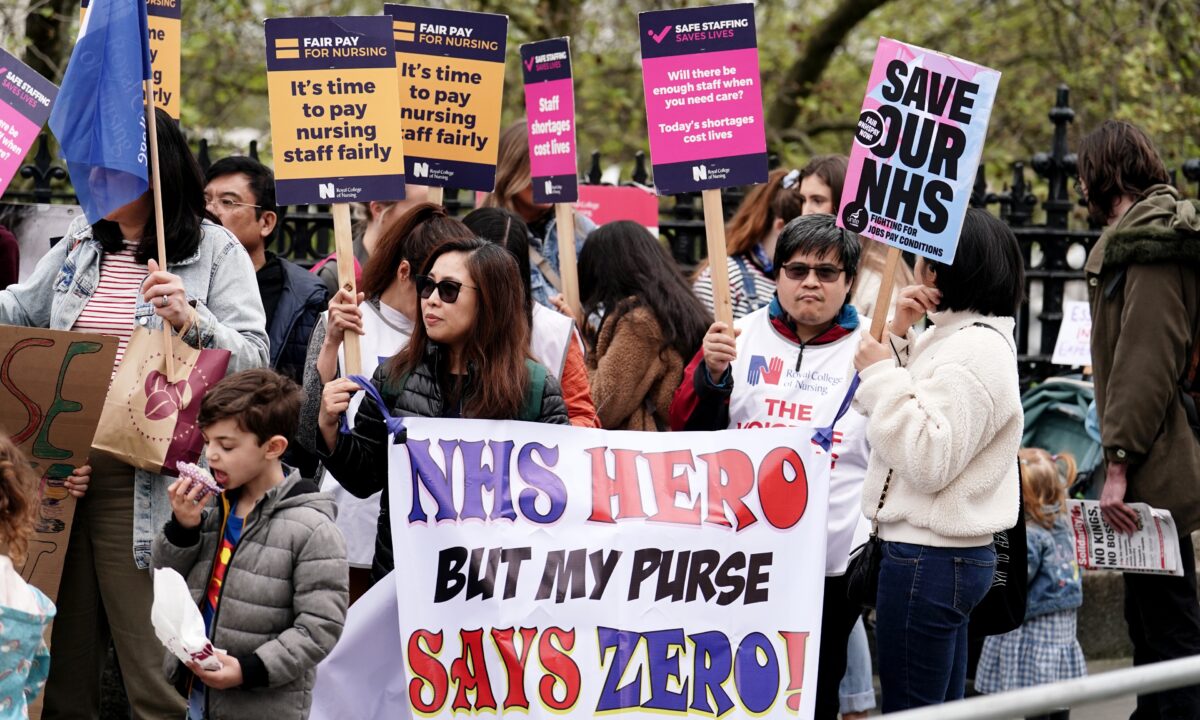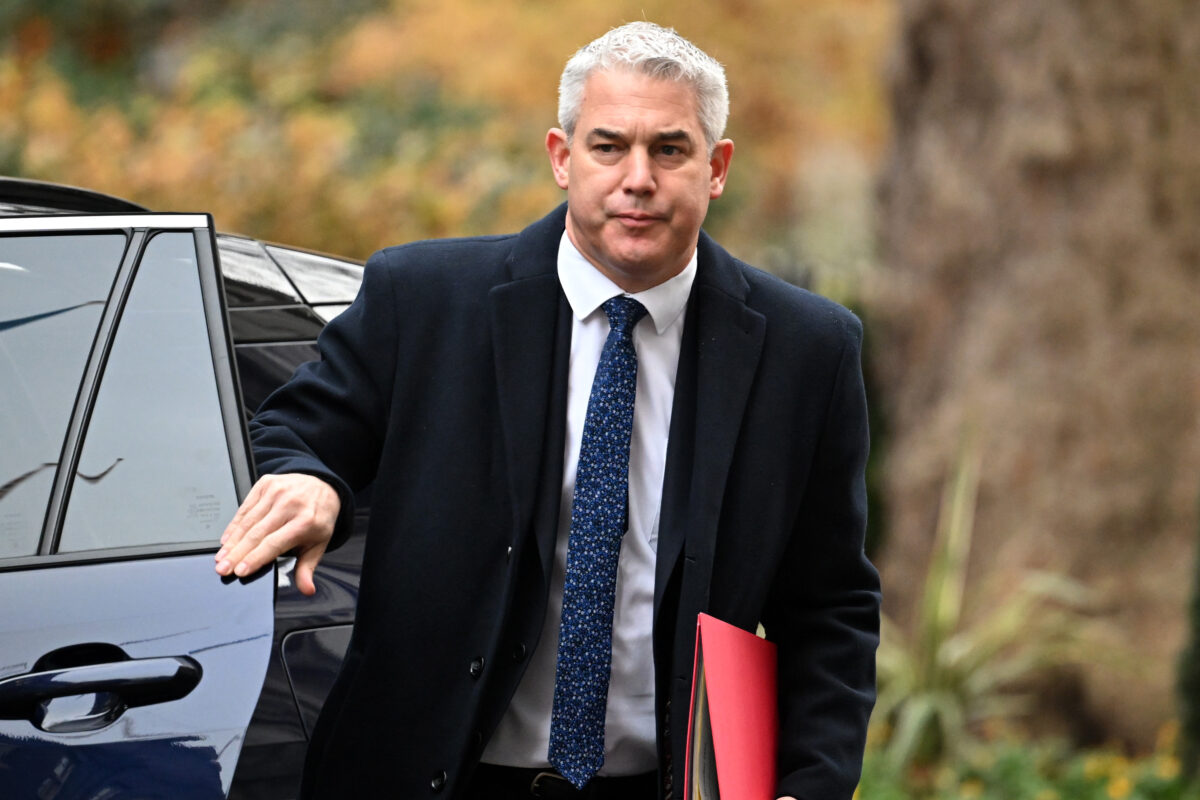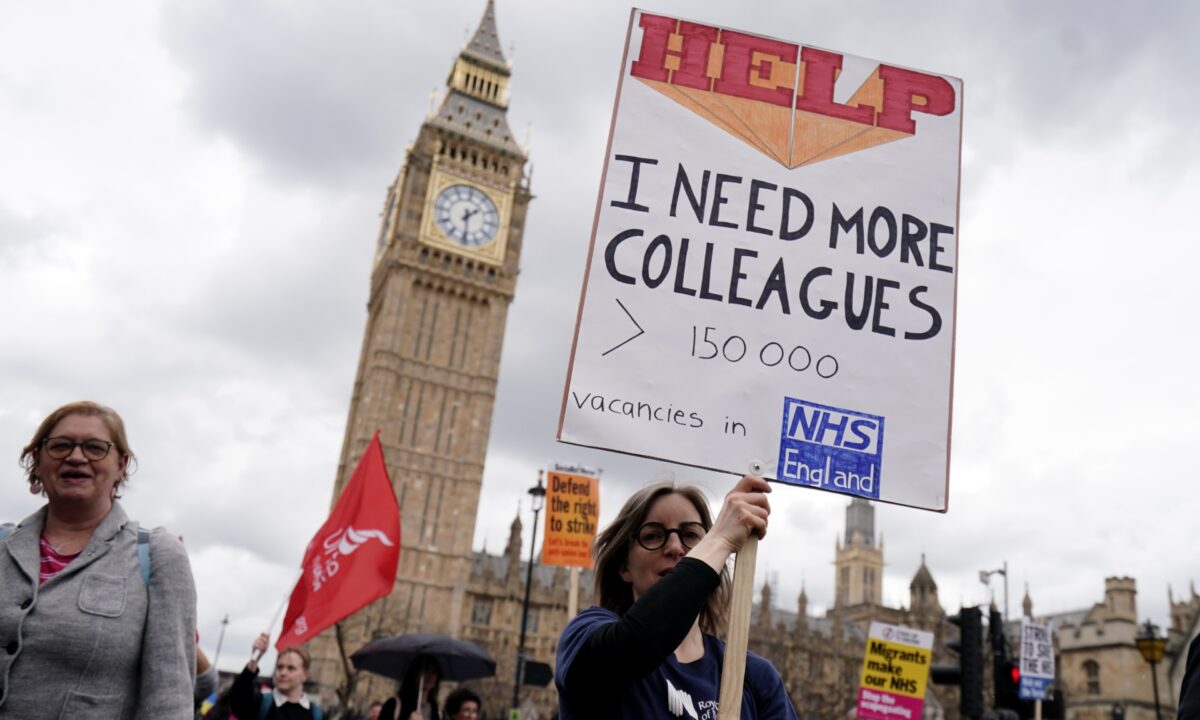


Emergency departments (ER), cancer wards, and intensive care units (ICU) in England have been affected for the first time as nurses began their “biggest strike yet” on Sunday evening over a pay dispute.
The 28-hour-walk out between 8 p.m. on Sunday and a minute before midnight on Monday came after members of the Royal College of Nursing (RCN) voted to reject the government’s pay offer.
The RCN said it’s demanding “the urgent reopening of pay talks.”
The union initially said there would be no derogations, but after negotiating with hospitals, exemptions were made to allow some nursing staff to work in neonatal ICU, paediatric ICU, and adult ICU to “preserve life-and-limb care.”
RCN general secretary Pat Cullen told ITV’s “Good Morning Britain” programme that the union had granted “the majority if not all of the exemptions requested.”
The strike was initially going to be 48 hours long but had to be cut short after the high court agreed with the government that the RCN’s mandate to organize strikes would expire on Monday night.
The offer, which consists of a 5 percent pay increase for the 2023–2024 year, a one-off payment for 2022 that equals 2 percent of one’s salary, and a one-off “NHS backlog bonus,” was made to all unions covered by the “Agenda for Change” pay system.
Unions previously recommended their members to accept, saying it was likely the best deal they could negotiate, but the voting results have been split across different unions.
Union chiefs are set to meet with UK National Health Service (NHS) employers on Tuesday and vote on whether to collectively accept the offer.
Members of Union, GMB, the Royal College of Midwives, the British and Irish Orthoptic Society, and the Chartered Society of Physiotherapy have voted to accept the offer, while members of RCN, Unite, the Royal College of Podiatry, and the Society of Radiographers voted to reject the deal. The British Dietetic Association and the Federation of Clinical Scientists have not announced their ballot results.
Speaking to reporters on Sunday, Health Secretary Steve Barclay said he was “cautiously optimistic” that the offer will be accepted.
He also criticised the RCN for staging a strike ahead of the vote, saying it was “premature” and “disrespectful to the other trade unions.”
Cullen told Sky News on Monday that there was “certainly no disrespect being shown from our nursing staff,” and urged the health secretary “not to be disrespectful” to nurses on strike, who she says are “standing up for our health service that’s been totally broken by this government.”
“An NHS in crisis, 7 million-plus people on waiting lists—so how are we going to address all of those issues, how are we going to address tens of thousands of vacant posts that we’ve got in England?
“If we don’t, then we will continue with serious risk to patient safety and we will never get the backlog sorted.”
She urged the government to “get round this table immediately” and improve the offer.
She also rejected that there are “credibility issues” that she’s criticizing the deal after recommending it, saying, “What our nursing staff said was it was neither fair nor reasonable—it puts money in their pockets now but in the long term, it doesn’t address recruitment and retention issues.”
Cullen also told the PA Media news agency that the RCN will re-ballot members in May for a new mandate to strike.
Asked about concerns over patient safety, Cullen said it’s “funny” that “patient safety issues always get highlighted on the day our nurses are exercising their voice on behalf of their patients.
“What I would say to those people is work a day in the shoes of our nursing staff on the 364 days of the year that are never mentioned by general managers or chief executives, or indeed this government,” she said. “It’s our nursing staff that are carrying that risk.”
Matthew Taylor, chief executive of the NHS Confederation, has said the six months of on-and-off strikes have “taken a heavy toll” on services and urged unions to accept pay deals.
Taylor told Sky News that the NHS employers are “relieved” that the strike has been cut short and are “grateful” that the RCN has put in place “a rising number of mitigations specifically agreed with individual hospitals in order to protect life-and-limb services.”
He praised the unions for that “solidarity,” saying that’s what got them the deal, but said the federation believes that “given that most staff have voted in favor of this deal, it is time to accept it, for the unions to work together, and for us to think more long term about what we need to do to address that crisis of 120,000 vacancies in the health service.”
The RCN has previously said experienced nurses’ salaries have dropped by one-fifth in real terms since 2010, but the government said the offer on the table is “fair and reasonable.” Ministers have also previously said they were concerned about the risk of embedding inflation.


